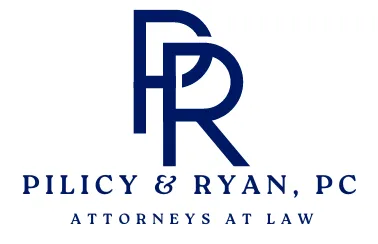Contracts and Community Associations
One of the items our office is often asked about is entering into contracts. Contracts are generally simple enough to understand. Party A agrees to provide a good or service to Party B. Party B agrees to pay Party A for said good or service. Seems like a simple proposition, so why do so many questions arise about contracts and community associations?
First, is the question of who exactly selects the contractor and enters into the contract when goods or services are being provided to a community association? Is it the Property Manager? Is it the Board President? Is it the community association as a whole? The answer may surprise you. The Board of Directors, and only the Board of Directors, has the ability to represent the association when entering into a contract. That means that the contract should be signed by the vendor and the President, or another Officer if designated by the Board, should enter into the contract on behalf of the association. Any signatures to any contacts should reflect as much. In other words, Main Street Commons Homeowners Association Board President Joe Smith should sign any contact entered into on behalf of the association as Joe Smith, Board President, Main Street Common Homeowners Association. This clears up any ambiguity as to who has entered into the contract.
The second question is when should a community association refer a contract to the association’s attorney? The answer is “always”! Contracts are legally binding agreements that should be routinely reviewed by the community association’s attorney to avoid risk and liability. The cost of reviewing the contract is minimal compared to the potential problems that could arise if a faulty or otherwise inadequate agreement was entered into by the association. This office routinely drafts provisions that will save the Association money in the event a true issue arises. For example, this office includes provisions that allow contracts to be terminated without cause so as to avoid a legal battle over whether or not a party breached the contract. Other clauses determine what court shall have jurisdiction, which party shall pay legal fees, fixed damages, and/or proper default interest rates. The saying “penny wise, pound foolish” comes to mind when thinking about entering into a contract without having a legal professional review it before doing so.
The third question that comes to mind is why go the trouble of having every contract reviewed by the community association attorney? For starters, every party entering into a contract has an agenda. A contractor will never offer a contract that is in the association’s best interests. Nor should the contractor be expected to. The contractor has had its own attorney prepare its contract with the goal of protecting the contractor’s best interests. That doesn’t mean the contract is bad; it just means it needs a second legal opinion from an attorney representing the association’s best interest. There are no “small” contracts. Contracts can have big consequences, even small ones.
It is important that the association be protected in each and every situation where it needs to enter into a contract. Dotting the “i”s and crossing the “t”s are the technical parts of preparing a legal contract. Having a qualified community association attorney review the contract and make sure it is in the best interest of the association is the only way to minimize risk and liability for all members of the association.
Attorneys Franklin G. Pilicy and Chas A. Ryan specialize in all aspects of community association law. Don’t let your association enter into any contract without the advice and consent of one of our skilled attorneys.
Pilicy & Ryan, PC
235 Main Street
Watertown, CT 06795
Phone: 860-274-0018
Fax: 860-274-0061
The attorneys and staff of Pilicy & Ryan, PC strive to be accessible to clients, starting with a free consultation. One of our knowledgeable attorneys will meet with you one-on-one to discuss your concerns, your goals, your rights and your options in any legal matter.
To find out how our lawyers can help solve your legal conflict or protect your interests, please contact our office by phone or by completing the form on this page, and we will contact you as soon as possible.
**Disclaimer: The use of the Internet or this form for communication with the firm or any individual member of the firm does not establish an attorney-client relationship. Confidential or time-sensitive information should not be sent through this form.
Read our Privacy Policy here.
